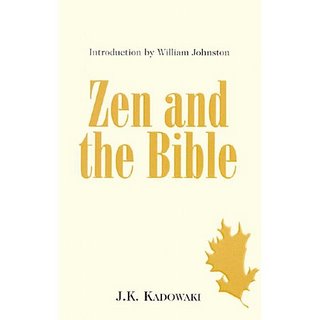The Fantasticks
I was listening to NPR on my way home from work yesterday and heard the interview of the lyricist for the Fantasticks http://www.npr.org/templates/story/story.php?storyId=5697901 who rewrote a song "It Depends on What You Pay" to take out the word "rape". That brought back a flood of memories. It was the second play I worked on. It was also the one where I got my first epiphany on the LUO. I was backstage during one of the performances with plenty of time between scene changes and I was reading Zen and the Bible by J. K. Kadowaki.

It's a discussion about how the author, a Catholic priest used Zen meditation techniques in his worship an interesting read and the first time I had read anything about Buddhism. In it he made the comment that the Judeo-Christian culture is based on a desert religion a relgion that begins with the expulsion from the Garden of Eden. This is so engrained in the religion such that life is a constant struggle to try to return to the Garden. Having developed in the Middle East, that reminder of not being in the Garden was a painful reality in the early development of Judeo-Christianity. He contrasts this with the Native American cultures who followed Nature-based religions. Most of those cultures were living in bountiful harmony with nature and saw no need to get back to anything. Why would you want to go back to the Garden of Eden, when it's already all around you? It could be that at a fundamental level our modern Western culture has not gotten this longing for the Garden out of its system. While I agree that self-improvement and self-enlightenment are worthy goals, and that you shouldn't necessarily settle for what you have now and should strive for something better, you should also recognize the benefits of what you have and the life that you lead and recognize how much worse it could have been.
I seem to recall that shortly after he made the Garden of Eden statment, he talked about the concept of God being the sum total of existence about how we are all a part of God and how seperating God from ourselves cheapens the idea of what God is. I recall when that idea sunk in me I felt lightheaded and tingly. It was a "Woah!" moment. Everything seemed different somehow after that. I could no longer look at anyone or anything the same way. There was an GIOAT that seemed so obvious and correct. I remember being so excited about the idea, but I was alone backstage with the play going on so I couldn't tell anyone about it right away. Then there was scene change and I had to go out.
But that formed a basis from which everything I've come to believe has developed. Everything has bits of wisdom that you can't ignore. Everyone and everything is part of this existence and a part of the Divine tha deserves respect because it is also a part of you. You cannot outright reject a belief system without losing wisdom and knowledge that will only expand and extend your own understanding.

0 Comments:
Post a Comment
<< Home